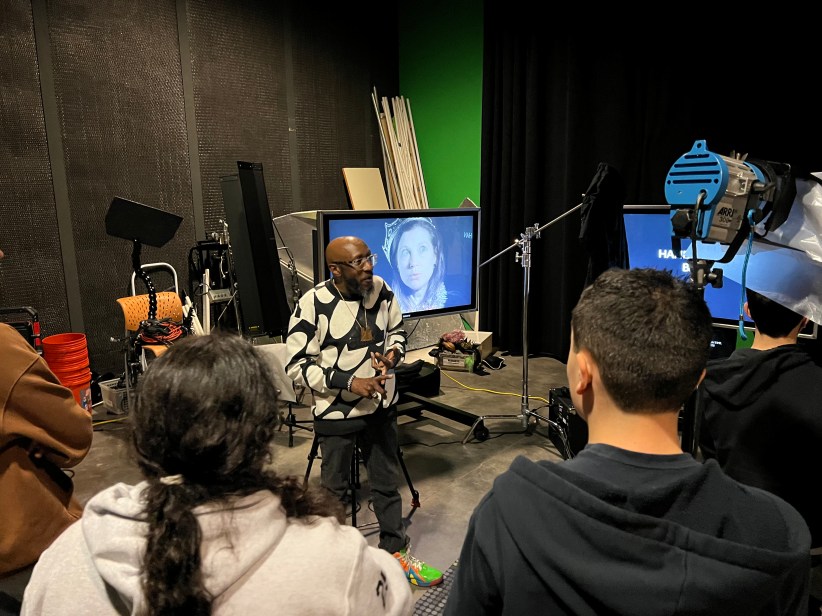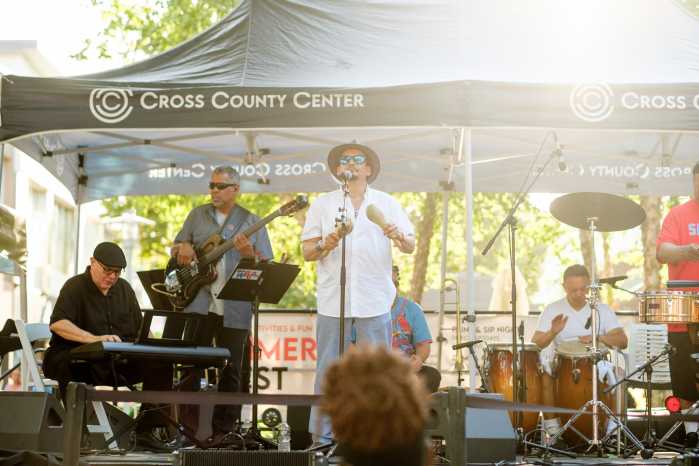Congregation Sons of Israel (CSI) in Briarcliff Manor is growing! An environmentally aware rabbi and a few farm-loving congregants have transformed the overgrown backyard of this conservative synagogue into a working farm and community conduit. With encouragement from Rabbi Steven Kane, synagogue members Ryna Lustig and Frederick Schulman hatched a plan for the CSI Organic Farm two years ago.
The Prep and Harvest
After clearing the brush, an entire year went into preparing the soil, with cover crops to improve its nutrients. Congregants were keen to offer their help: Schulman shared his experience on his immigrant family’s farm; Lustig, a landscape design consultant, contributed her expertise; Susan Eisenstein, who has dreamed of living on a farm since age 5, pushed to add chickens to the plan. The Organic Farm Committee developed two areas: a community garden with plots for rent, and a one-acre working farm. Nestled between the two, CSI created an outdoor seating space suitable for education, celebration or meditation. Additionally, a chicken coop village houses 15 lively hens.
This summer marked the appearance of the first, plentiful crops. Happy, free range hens are laying by the dozen. The main farm sells produce to Aesop’s Fable in Chappaqua and Holbrook Cottage in Briarcliff Manor. Farm Consultant Mike Fedison of Hilltop Hanover Farm, notes how impressive it is that they got this farm up and running so fast. With all the labor involved, the congregation is hoping to secure a farming apprentice for the upcoming growing season.
Jewish Values
The farm enables a greater understanding and practice of Jewish values surrounding stewardship of the planet. Hebrew school students help to tend the crops. Roni Shapiro-Ben David, Educational Director at CSI, even cooked up a delicious shakshuka for students with the freshly harvested bounty of tomatoes and eggs from the farm.
With all the talk about climate change, teens are showing a greater interest in environmental issues. Here, they can learn about caring for all living things from the ground up. With hands-on interaction throughout the growing cycle, teens gain a full appreciation of their food.
For adolescents hooked on technology, “the farm is the opposite. It’s slow,” a benefit noted by Lustig. She has also noticed that kids do seem to be naturally inclined toward doing good. Tending the land and animals, providing healthy food to the needy and working together with temple members of all ages, enable teens to participate in “tikkun olam” repairing the world.
Kane sees the farm project as a meaningful way to engage teenagers. As per Jewish law, CSI donates 10 percent of all food grown to charity. Recipients have included Ossining Food Bank and the Ossining Children’s Center, teaching this mitzvah of tzedakah in a very practical and concrete way.
Bar/Bat Mitzvah
As becoming a bar/bat mitzvah is the passing down of Torah from one generation to the next, so too is the organic farm a means of intergenerational connection. Kane observes, “We see grandparents and grandchildren, mothers and daughters, along with classes of children and their teachers all participating in the work of making our organic farm a reality.”
The farm is still new, but the rabbi hopes that some youth will choose to work with the farm for their bar mitzvah project. “Working the land teaches social responsibility and helping others.” Bar-mitzvah-age youth can donate time and plants, with the farm providing a new outlet for them to express their interests and Jewish values.
In lieu of disposable cut flower arrangements, the Farm Committee encourages bnai mitzvah families to purchase pollinator plants, which get wrapped up nicely for centerpieces. When the celebration ends, these plants are installed in the community garden. Since inception, this program has already filled two beds at the entrance to the garden with useful and beautiful plants.
A Community
For adults and children alike, the farm encourages exercise, fresh air, and hands-on learning about gardening and nutrition. “CSI Farm is just one way to see Judaism as a more expansive part of our lives.” says Rabbi Kane. Eisenstein describes it as, “a place for the community to make their own.”
Rabbi Kane emphasizes how the farm has made synagogue life more accessible. “One of the most beautiful aspects of the farm is that any member of the community, no matter how young or old, no matter how experienced they are in working the soil and whatever level their involvement in other parts of the synagogue may be is able to participate in the farm.”
Elisa Bremner, RDN, is a local vegetable enthusiast with a passion for food justice.












